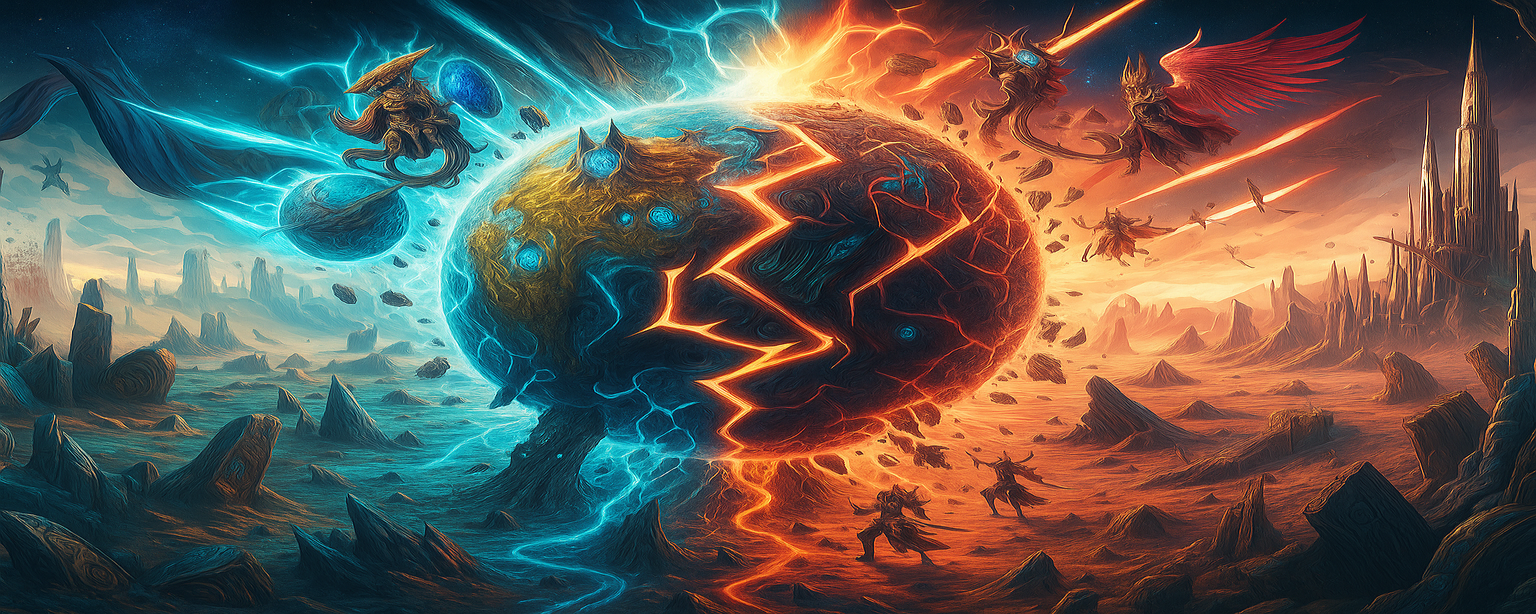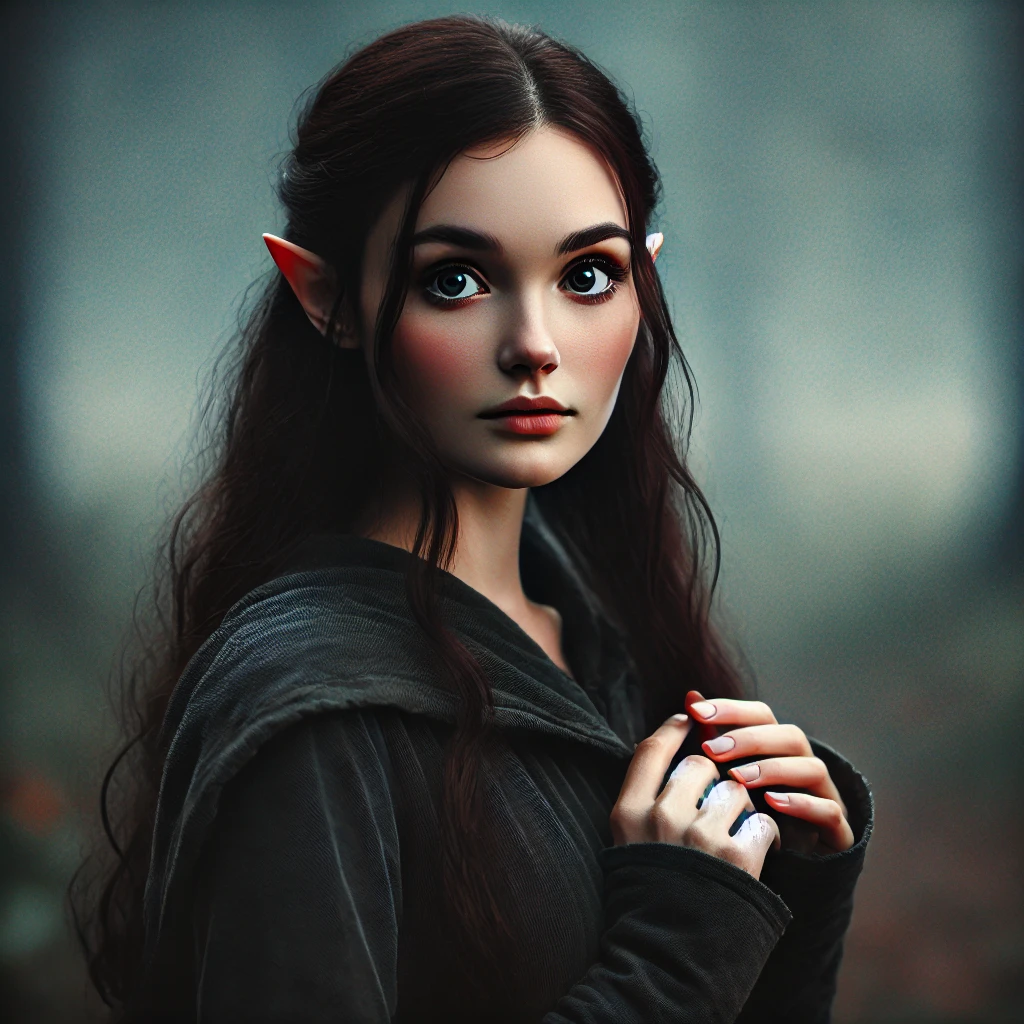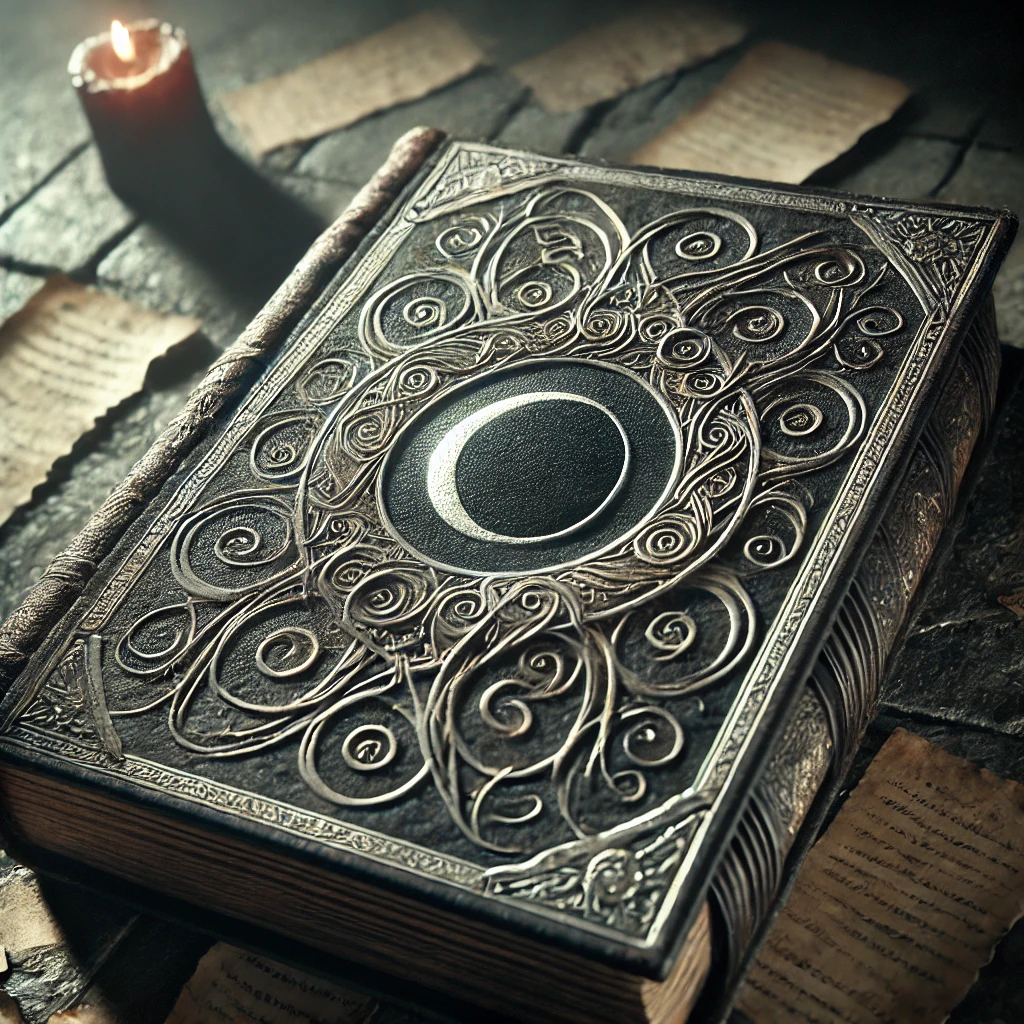The Moon and the Light That Follows
When the moon first appeared in the sky, I did not know what to think. It was not something that had always existed. It was not something carefully woven into the fabric of the world by the architects of creation. It was made. A punishment. A monument to a crime. And yet, it was perfect.
I have studied the celestial bodies since I first grasped the equations that govern them. The way they move, the way they hold the world in their unseen hands. The balance is precise, deliberate—creation itself is a language of patterns. And then the moon was born, and the pattern changed.
I watched as it tugged at the world, bending the very fabric of the natural order. The tides, once guided only by Ilmos’s silent hand, now danced to a rhythm they had never known. Pushed and pulled by something new, something unnatural yet seamless, the old rules bent but did not break. I had feared they would shatter, that this great celestial wound would undo the careful calculations of existence. But Ilmos did not resist it. He simply adjusted. The tides obeyed. The forests and rivers and creatures of the world, those bound to Ilmos’s will, shifted without question. As if the moon had always been meant to be.
I do not know how she did it. How she forced something unnatural into nature itself, reshaping the order of things without unraveling them. A divine scar turned into a foundation. A mistake that became a rule. Oh, mother creation in all your limitless knowledge and wonder.
I stood beneath its pale glow for hours, tracing its orbit, feeling its silent weight against my own understanding of the world. I marveled at it, at its inevitability, at the quiet defiance of its presence. And yet, no matter how much I studied it, I could not forget. It is a punishment. A reminder. A warning.
And now, there is Felotl. The newest god, the child of light, the supposed beacon in the darkness. I do not trust him. The sun has always been a constant. It did not need a master. It did not need a voice. And yet, he was made. Born not from the hands of creation nor destruction, but as an answer to something unspoken.
The light has always burned away the dark, but this feels different. This feels… directed. I watch him as I watch the moon. Neither should exist. And yet, they do. I wonder if one day we will come to regret them.
The Silence That Follows
I do not know when it started, but I have come to realize something unsettling—whenever Krorone enters a space, the air changes.
It is not simply the weight of her presence. It is the way conversations falter. The way even the boldest of us lower their voices. The way we all, without thinking, step just slightly further from her.
No one speaks of it. No one dares to acknowledge it. And yet, we all feel it. Krorone is left to her own devices.
That is not a decree. That is not something written in the divine order. It is simply understood. She does as she pleases. We do not interfere. No one wishes to test the consequences of doing otherwise.
Her voice is not loud. She does not need it to be. When she speaks, people listen. And when she stops speaking, no one dares to fill the silence.
The Mistress of Pain
Her followers call her the Mistress of Pain. I have read their prayers. I have studied their rituals. I have seen the reverence in their eyes. I do not understand them. They do not fear her. That is the strangest part. They revere her, yes, but there is something else. Something deeper. As if they have found solace in suffering, as if they see in her something more than cruelty. She does not demand worship. And yet, they give it freely.
Why?
She does not weaken. That is not how this works. Gods rise and fall, their strength dictated by belief, by devotion, by mortal will. Krorone does not follow this pattern. She only grows stronger. I have run the calculations. I have followed the patterns. There is no explanation. It is as if she exists outside of the rules. No, not outside of them. Above them.
The Shadow Over Divinity
I have often wondered if she regrets what she has become. I will never ask. Some questions do not need answers.
And yet, there are moments—fleeting, but undeniable—when I catch her watching. Not in the way mortals observe their gods, nor even how we gods observe one another. It is not curiosity, not judgment, not even recognition. It is something deeper, something distant, as if she is seeing something the rest of us cannot. Or perhaps… something the rest of us refuse to see.
She does not linger. She does not explain. She simply watches, and then she moves on, as if whatever answer she sought was already known.
I do not know what she sees. I do not think I want to. I tell myself she is not the strongest among us. That is what I must believe. That is what I will continue to believe. And yet, even as I write this, my hand shakes.




Comments